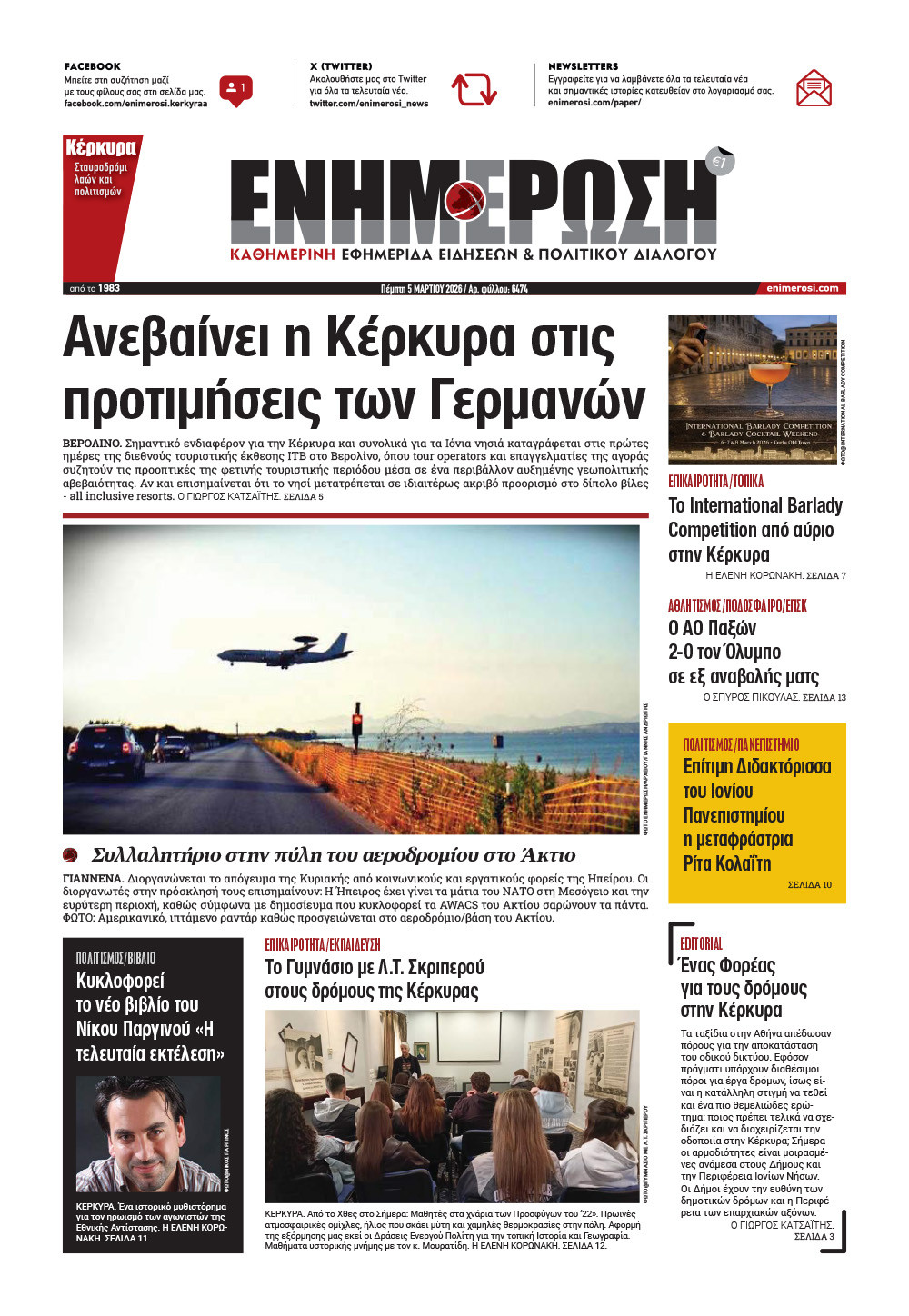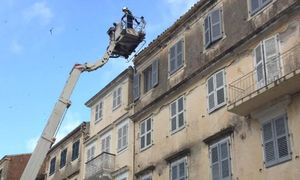Battle with the weather and bureaucracy

CORFU. What is required is the restoration of public and private infrastructure, support measures, and compensation.
Strengthening the repair crews working on the road and electricity networks is an issue that the Deputy Minister for Civil Protection, K. Katsafados, who is visiting the island at the head of a task force, is called upon to address. According to sources from the Municipality of North Corfu, by late yesterday evening, and until nightfall forced them to stop, the crews had cleared and reopened to traffic roughly 80% of the roads. DEDDIE was restoring power to the areas of Karousades, Avliotes, Magoulades, Agios Stefanos, Arillas, Dafni, Sidari, Afionas, and others that had been left in the dark since the early hours of Friday.
After the meeting at the town hall, the Regional Governor announced that the Ionian Islands Regional Authority is immediately submitting a request to the Ministry of the Interior to declare the Municipality of North Corfu in a state of emergency, with the aim of speeding up all bureaucratic procedures. At the same time, he announced that on Tuesday, 25 November, he will hold a meeting in Athens with the leadership of the Ministry of the Interior to secure the necessary funding for the urgent interventions.
The declaration of the area as being in a state of emergency.
Usually, the declaration decision is issued within the first few days. It constitutes the legal basis for activating state aid and funding measures. This is followed by the recording of damage by mixed teams of state engineers and services, who conduct on-site inspections of homes and buildings, assess risks, and classify structures.
Provision is made for a one-off emergency allowance, compensation for damaged household goods, housing assistance for repairs or reconstruction, rent or temporary accommodation subsidy, and restoration of equipment and merchandise in the case of affected businesses.
In the case of the landslides and floods in Corfu, urgent contracting is required for clearing debris, stabilising slopes, restoring the road network, and implementing flood-protection works.
Despite the institutional framework, significant delays are observed in completing inspections, disbursing compensation, and carrying out permanent works.
GIORGOS KATSAITIS





